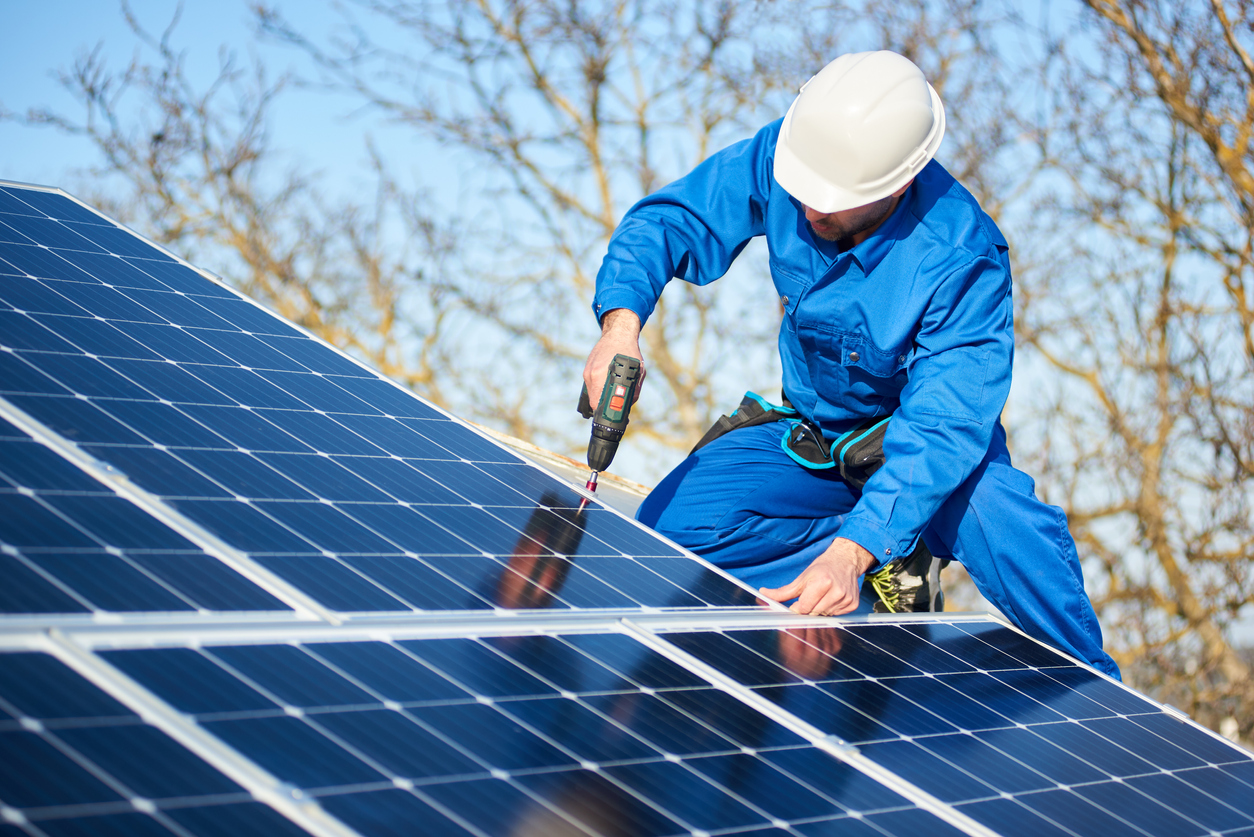 Solar power is a booming industry in Massachusetts. According to recent data from the Solar Energy Industries Association (SEIA), as of Q2 2020, Massachusetts is 8th in the country in solar energy installed. In fact, Massachusetts wants to increase the amount of solar installed in the state. To accomplish this goal, the Massachusetts Department of Energy Resources has even created a long-term, sustainable solar incentive program to promote cost-effective solar development in the Commonwealth.
Solar power is a booming industry in Massachusetts. According to recent data from the Solar Energy Industries Association (SEIA), as of Q2 2020, Massachusetts is 8th in the country in solar energy installed. In fact, Massachusetts wants to increase the amount of solar installed in the state. To accomplish this goal, the Massachusetts Department of Energy Resources has even created a long-term, sustainable solar incentive program to promote cost-effective solar development in the Commonwealth.
If you install solar panels or have in the past, you may be entitled to receive the prevailing wage rate (often called “the rate” on job sites).
Massachusetts Prevailing Wage Law requires the payment of prevailing wage on construction projects involving the state or local cities and towns. Construction is more encompassing than building in the traditional sense. Among other things, it includes, “additions to and alterations of public works.” G.L. c. 149 § 27D.
So, installing solar panels on public buildings, such as schools, should qualify. But, why only “should?” As you’ll soon learn, it gets complicated, because energy generation adds its own unique twist.
Installing solar panels (also referred to as a “solar array”) meets the definition of construction under Massachusetts law. But, three additional factors may play a role in determining whether prevailing wage law applies.
- The physical location of the panels
- Is there a lease involved? and,
- Who gets the benefit of the panels?
Panel Location
If a solar array is installed on a public building, for example a school’s roof, the inquiry appears simple enough – prevailing wage should apply. Even if the panels are installed on open public space, such as an old landfill or dump, you are likely entitled to payment of the prevailing wage rate. But, sometimes the location of the panel array is not the sole determining factor.
Impact of Lease
Some cities and towns lease their available public roof and landfill space to private companies so they can build and maintain solar arrays, instead of the city or town. In those cases, the analysis is not so clear-cut. Despite the array being located on public property, a private third-party actually owns the arrays. This may impact the applicability of the prevailing wage rate to the installation of those arrays. But, still another factor impacts the analysis – the owner of the energy generated by the panels.
Energy Beneficiary
Sometimes, even when the land or roof space for the panels is leased to a private entity, the city or town retains the right to all of the energy generated by those same arrays through a process generally known as “net-metering.” That factor may make the project subject to prevailing wage.
Prevailing Wage Determination
Whether a project is subject to the prevailing wage law is generally determined by the Department of Labor Standards (“DLS”), the agency in charge of making the determination of which projects are subject to the prevailing wage law. As required by law, a public project’s awarding authority must request a “rate sheet” from DLS for a prospective project. G.L. c. 149, § 26. Upon receiving the request, DLS then issues a “rate sheet,” which outlines the different job classifications and required rates of pay for that project. These are available to download on the internet.
However, sometimes, an awarding authority fails to request a rate sheet for a project. In those scenarios, a third party may ask DLS to render an opinion as to the applicability of the prevailing wage law to that specific project. While DLS is accorded deference in its determinations, it is not absolute and can be overridden by a court. See e.g., Kelly v. Howland Disposal Svc., Inc., (Plymouth Sup. Ct. 2017-00827) (finding that prevailing wage applies, despite DLS’ opinion to the contrary, to leased town transfer station).
Keep in mind that even if the prevailing wage rate applies to your solar project, you can still be paid the wrong rate.
As with all public projects, you must be paid based on the tasks you perform. Generally, most tasks associated with solar panel installation should be paid at the electrician’s rate. See DLS Opinion Letter (https://www.mass.gov/doc/prevailing-wage-topical-index/download). This includes, “the installation of mounting brackets and attachment of such brackets to the roof as these tasks are integral to the installation of the modules themselves.” Id. Additionally, “if portions of the roof structure are removed or re-roofed or flashing or other roofing material is required to be installed as part of the project,” the Roofers rate applies. Id.
Fact is, employers have a strong incentive to pay less that the correct rate, and they often do. If you believe that, for example, you are not receiving the electrician rate for solar panel installation on a public building, get in touch with us. We evaluate cases confidentially and at no cost to you.